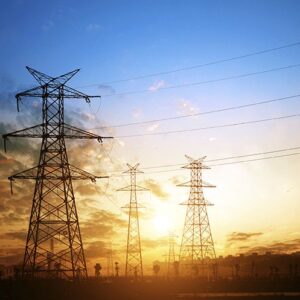In an era where sustainability and eco-friendly energy sources are becoming increasingly important, solar energy plays a crucial role in the transition to renewable energy. Solar panels and photovoltaic modules are key components in this shift, and their usage is rapidly increasing worldwide, including in Sweden.
What Are Solar Panels and Photovoltaic Modules?
Solar panels, also known as photovoltaic panels, consist of several photovoltaic modules that work together to convert sunlight into electricity. Each photovoltaic module contains solar cells made of semiconductor materials, typically silicon. When sunlight hits the solar cells, an electric current is generated through a process called the photovoltaic effect.
Benefits of Solar Energy
- Environmentally Friendly: Solar energy is a clean and renewable energy source that does not produce carbon emissions or other harmful pollutants.
- Cost-Effective: After the initial investment in solar panels, the operating costs are low, and solar energy can help reduce energy costs in the long term.
- Long Lifespan: Solar panels have a long lifespan, usually between 25 and 30 years, making them a long-term investment.
- Energy Independence: By producing their own electricity, households and businesses can reduce their dependence on the power grid and protect themselves against future energy price increases.
Development in Sweden
Sweden has seen a significant increase in the use of solar energy in recent years. The government has introduced several incentives to encourage the installation of solar panels, including subsidies and tax breaks for both individuals and businesses. Additionally, technological advancements have made solar energy more accessible and affordable to the general public.
Installation and Maintenance
Installing solar panels requires professional assistance to ensure proper placement and connection to the building’s electrical system. It is important to consider the following factors during installation:
- Location: Solar panels should be placed on a roof or surface that receives maximum sunlight, typically south-facing in Sweden.
- Angle: The panels should be mounted at an angle that optimizes solar absorption, depending on the building’s geographical location.
- Maintenance: Solar panels require minimal maintenance, but regular cleaning and inspections can ensure they operate efficiently and last longer.
Future Prospects
With increasing awareness of climate change and the need for sustainable energy, the use of solar panels and photovoltaic modules is expected to continue growing. Innovative technologies and improved manufacturing processes will make solar energy even more efficient and cost-effective in the future.
Conclusion
Solar panels and photovoltaic modules are central to the transition to a sustainable energy future. By investing in solar energy, we can not only reduce our environmental impact but also save money and become more energy independent. Sweden continues to lead the way with supportive policies and increased adoption of solar energy, paving the way for a greener and more sustainable future

